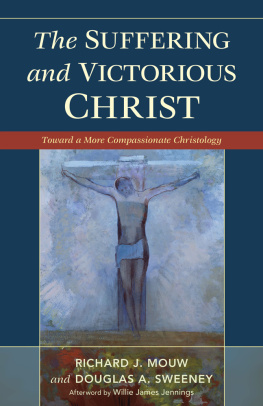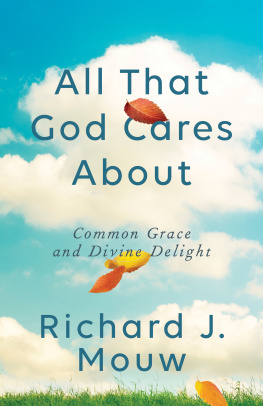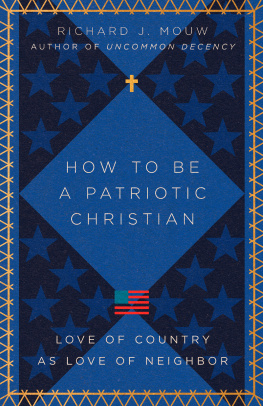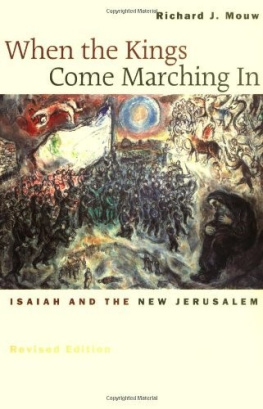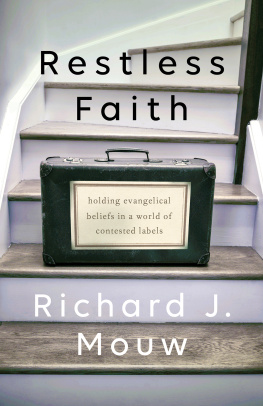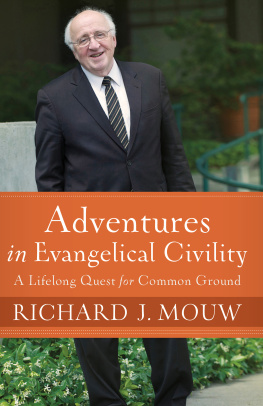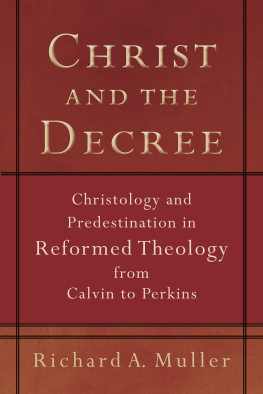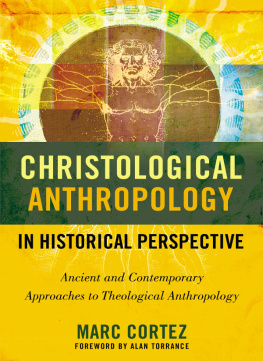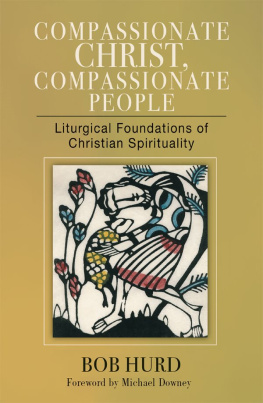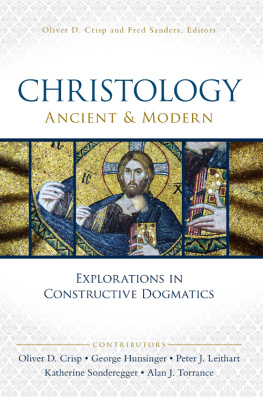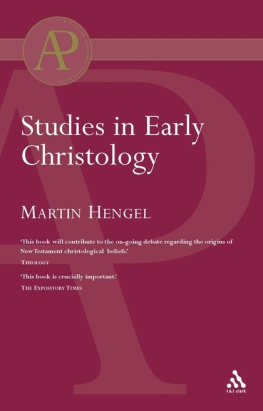Richard J. Mouw - The Suffering and Victorious Christ: Toward a More Compassionate Christology
Here you can read online Richard J. Mouw - The Suffering and Victorious Christ: Toward a More Compassionate Christology full text of the book (entire story) in english for free. Download pdf and epub, get meaning, cover and reviews about this ebook. year: 2013, publisher: Baker Publishing Group, genre: Religion. Description of the work, (preface) as well as reviews are available. Best literature library LitArk.com created for fans of good reading and offers a wide selection of genres:
Romance novel
Science fiction
Adventure
Detective
Science
History
Home and family
Prose
Art
Politics
Computer
Non-fiction
Religion
Business
Children
Humor
Choose a favorite category and find really read worthwhile books. Enjoy immersion in the world of imagination, feel the emotions of the characters or learn something new for yourself, make an fascinating discovery.
- Book:The Suffering and Victorious Christ: Toward a More Compassionate Christology
- Author:
- Publisher:Baker Publishing Group
- Genre:
- Year:2013
- Rating:5 / 5
- Favourites:Add to favourites
- Your mark:
- 100
- 1
- 2
- 3
- 4
- 5
The Suffering and Victorious Christ: Toward a More Compassionate Christology: summary, description and annotation
We offer to read an annotation, description, summary or preface (depends on what the author of the book "The Suffering and Victorious Christ: Toward a More Compassionate Christology" wrote himself). If you haven't found the necessary information about the book — write in the comments, we will try to find it.
The Suffering and Victorious Christ: Toward a More Compassionate Christology — read online for free the complete book (whole text) full work
Below is the text of the book, divided by pages. System saving the place of the last page read, allows you to conveniently read the book "The Suffering and Victorious Christ: Toward a More Compassionate Christology" online for free, without having to search again every time where you left off. Put a bookmark, and you can go to the page where you finished reading at any time.
Font size:
Interval:
Bookmark:

2013 by Richard J. Mouw and Douglas A. Sweeney
Published by Baker Academic
a division of Baker Publishing Group
P.O. Box 6287, Grand Rapids, MI 49516-6287
www . bakeracademic . com
Ebook edition created 2013
All rights reserved. No part of this publication may be reproduced, stored in a retrieval system, or transmitted in any form or by any meansfor example, electronic, photocopy, recordingwithout the prior written permission of the publisher. The only exception is brief quotations in printed reviews.
Library of Congress Cataloging-in-Publication Data is on file at the Library of Congress, Washington, DC.
ISBN 978-1-4412-4217-4
To
Walter Hansen,
cherished colleague, dear friend, and great supporter of global theological fellowship
Cover
Title Page
Copyright Page
Dedication
Acknowledgments
Introduction
1. John Williamson Nevin and the Incarnation of God
2. Franz Pieper and the Suffering of God
3. A Brief Interlude on Incarnational Presence
4. Reformed Theology and the Suffering of Christ
5. Christus Dolor among the Slaves and Their Descendants
6. The Challenge of Application: Christus Dolor in the American South
Conclusion
Christus Victor and Christus Dolor : An Afterword by Willie James Jennings
Resources for Christological Reflection from Our Japanese and African American Interlocutors
Notes
Index
Back Cover
T his book would not exist without the encouragement and help we have received from many others. First and foremost, we offer thanks to the organizers, hosts, and fellow participants at the conference Suffering and Hope in Jesus Christ: Christological Polarity and Religious Pluralism, cosponsored by Trinitys Henry Center and Tokyo Christian University. Spearheaded by Harold Netland, administered ably by Owen Strachan and the marvelous staff at Tokyo Christian, hosted marvelously by President Masanori Kurasawa and Dean Takanori Kobayashi, this was a wonderful environment in which to conceive a book. Our fellow speakers at the conferenceHisakazu Inagaki, Shohei Yamato, Akio Ito, Anri Morimoto, Heon-Wook Park, Graham Cole, Nelson Jennings, Richard Bauckham, and Tite Tinouwere fantastic interlocutors.
After the conference was over, we received additional help from an expert team of editorial colleagues. Bob Hosack kindly agreed to shepherd our project at Baker Academic. Brandon OBrien and David Barshinger helped us turn two conference papers into a small but substantive book. Harold Netland, David Kirkpatrick, Hans Madueme, David Luy, Jimmy Byrd, and Alan Watt gave the manuscript attention, offering valuable commentary and encouragement. Earlier versions of some of our chapters and/or queries from the authors were read and responded to insightfully by Paul Harvey, Scott Manetsch, Mickey Mattox, Joel Okamoto, and Beth Schweiger.
Last but not least, Walter Hansen has helped in too many ways to count. He enabled the Tokyo conference, read the papers we presented, encouraged the book you hold in your hands, and has proven himself an indispensable partner over and over, both at Fuller and at Trinity. We dedicate this book to him as a token of our admiration and gratitude.
An Afterword
Willie James Jennings
T here is a revolution taking place in Christian theology. It is a revolution that Christian theology itself is yet to articulate fully. The elements of this revolution are being spied out, one by one. The first crucial element of this revolution is the growing clarity and power of the designation global Christianity. Another element is the effects of various conceptualitiespostevangelical, postcolonial, even the almost exhausted postmodernon theology. Another crucial element is the increased volume of formerly colonized subaltern theological voices who now present multigenerational Christian reflection shaped in the crucible of white Western supremacy and white masculine intellectual hegemony. Last there is the coming demographic shifts that will transform majority (read: white) culture into minority (read: other) culture. Together these changes constitute a fundamentally new condition for doing theology.
Indeed, we have reached a crucial moment in the discursive practice called theology. As we enter this time of revolution, Christian theology finds itself caught in endless self-presentation. Theologians are increasingly producing basic texts of theology and publishers are feverishly putting out introductions to theology, or companions to theology, or dictionaries of theology as though the crucial need is to reintroduce Christian thought and its systems of reflection. We could follow some common narratives being proposed today, which see this moment of endless, even obsessive self-presentation as the final outworkings of a post-Christendom moment. Some suggest that we respond to this new situation by reasserting the grammar of the faith, and invite Christians to enter more deeply into the logics of their theological traditions.
This moment, however, is not one in which people in the academy or in churches are unable to define or understand Christian theology or their traditions. The problem at this moment is with theologys placement, theologys deployment, which presses on us the question, Where do you put theology now?
Where do you put theology in relation to educational systems and programs of intellectual formation? Where do you put it in relationship to the presentation of other religious systems of thought? Where do you put it in relation to other disciplinary discursive practices, like sociology or economics? Where do you put it in relation to other ecclesial practices, especially spiritual disciplines? Where do you put it in relation to strategies of political or social intervention, or cultural or religious collaboration, or engagement with scientific investigations? These are not questions about the value, confidence, or reach of theology. These questions have to do with the position of theology in relation to its movement away from its historic pedagogical foundationalism.
With the emergence of colonialism Christian theology enjoyed the benefits of a pedagogical foundationalism in Western educational programs both in the metropolis and in the colony through which its reason for existence was self-evident and in no real need of justification. There was no need to outline its connection to political economies or social systems. Christian theology was at the center of the civilizing impulse that established doctrine and Bible knowledge as a fundamental basis on which to build Western educational systems and proper intellectual formation. Such a hegemonic place for theology allowed theologians to imagine an imperial position of adjudication for theology itself.
Christian theology emerged out of the perennial need to give an account of the basic realities of Christian existence, to present the doctrines of the faith, and to teach people what Christians have believed and should believe. This perennial need dovetails with the question of theologys placement precisely because what should be taught is part of the architecture of how, when, where, and to whom it should be taught. But this is not a simple matter of logistics. The position of theology deeply shapes its performance. Theology is about a process of education in which people are invited into a way of discernment and of making judgments about faithful Christian life and faithful Christian thinking about life. Yet the questions that have been opened up in this moment are, From where does one make those judgments? and, Who is making those judgments? The loss of Christian theologys hegemonic position within Western educational systems and the collapse of the civilizing impulse within which theology enjoyed an imperial right of adjudication means that the position of theological judgment has now come into view as never before.
Font size:
Interval:
Bookmark:
Similar books «The Suffering and Victorious Christ: Toward a More Compassionate Christology»
Look at similar books to The Suffering and Victorious Christ: Toward a More Compassionate Christology. We have selected literature similar in name and meaning in the hope of providing readers with more options to find new, interesting, not yet read works.
Discussion, reviews of the book The Suffering and Victorious Christ: Toward a More Compassionate Christology and just readers' own opinions. Leave your comments, write what you think about the work, its meaning or the main characters. Specify what exactly you liked and what you didn't like, and why you think so.

